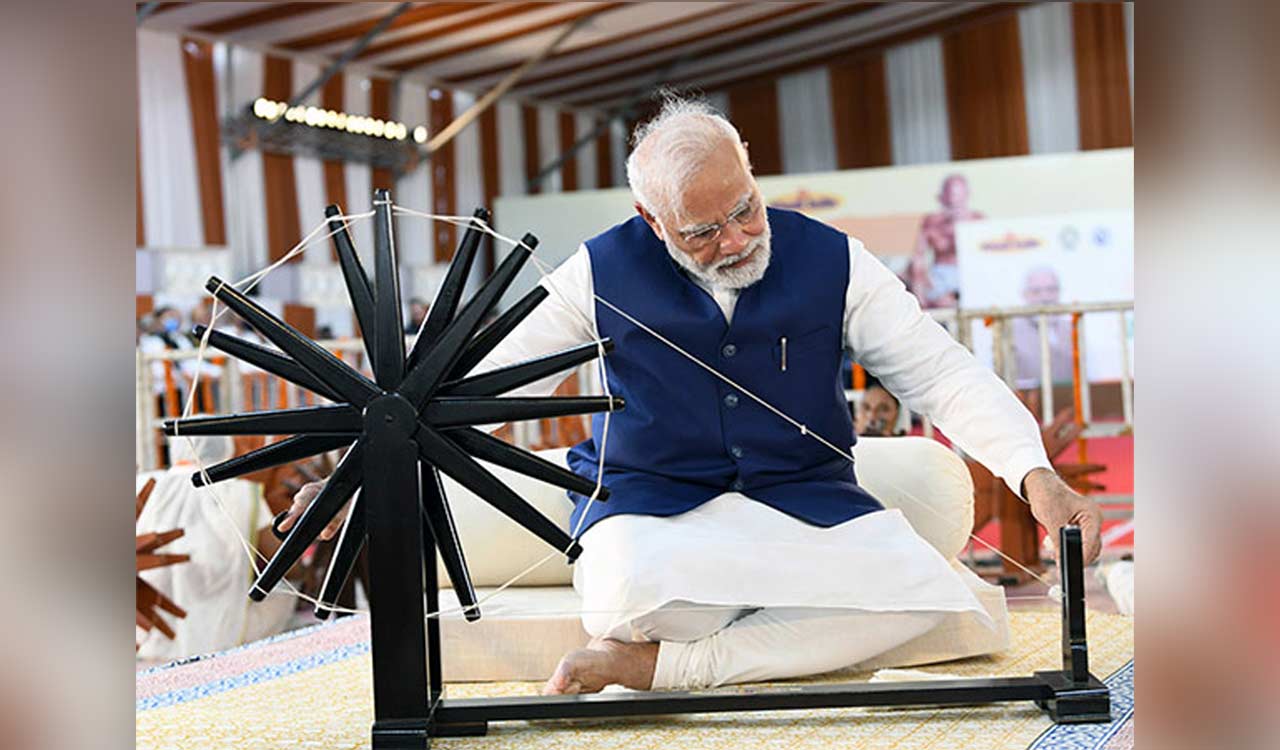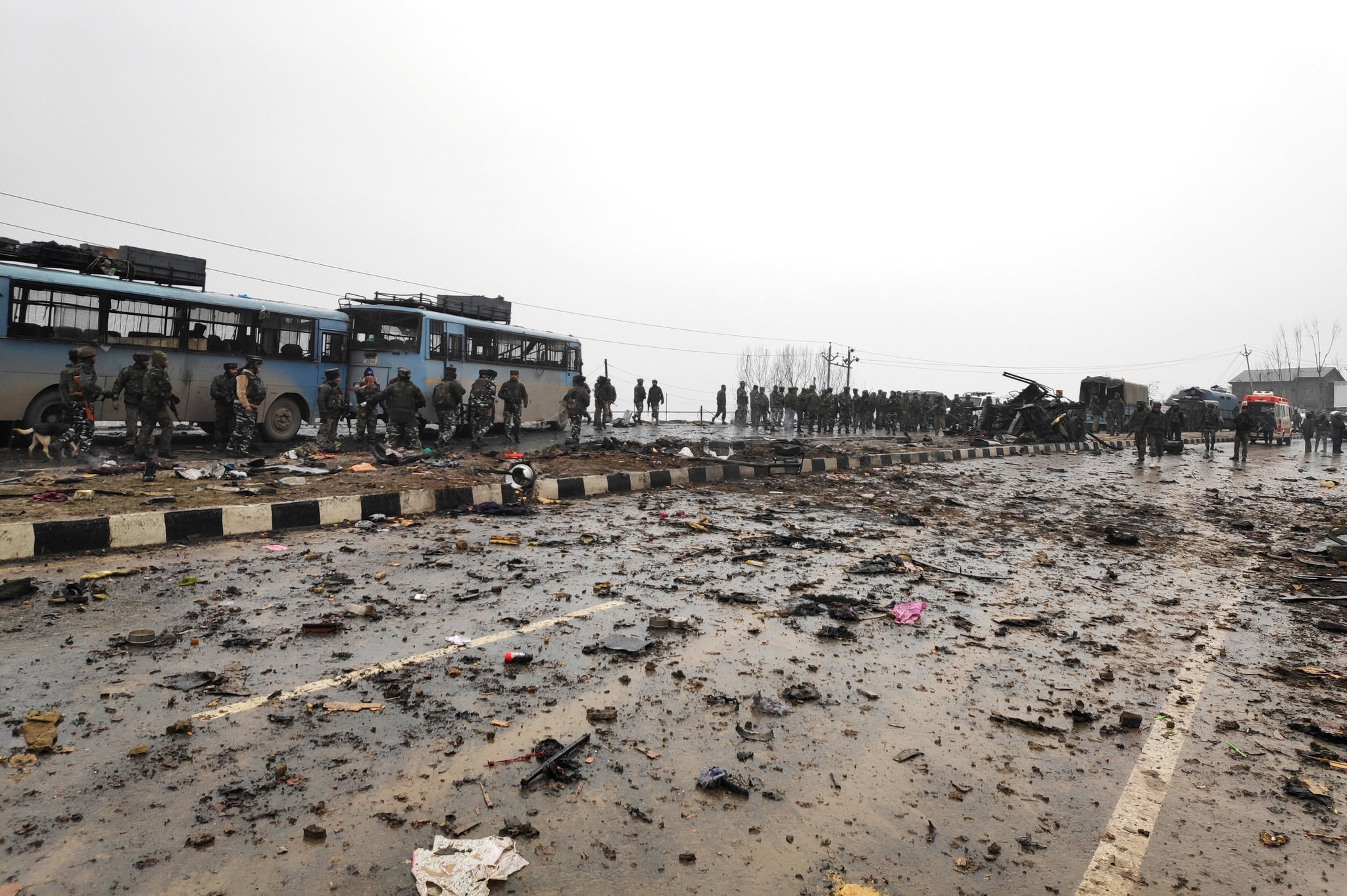


In a recent interview, Prime Minister Narendra Modi stated that Mahatma Gandhi was not widely known across the world until the film 'Gandhi' was made. This statement has sparked outrage among Congress leaders who argue that Gandhi was an inspiration to the entire world and his principles of truth and non-violence have influenced great leaders like Martin Luther King Jr and Nelson Mandela. Modi's remarks have reignited the debate on the importance of spreading awareness about Gandhi's legacy globally.
Gandhi's Global Recognition and Modi's Controversial Statement
Mahatma Gandhi, the father of the Indian independence movement, is widely regarded as one of the most influential figures in world history. His principles of truth and non-violence have inspired countless individuals and movements for social and political change.
Modi's Statement
In a recent interview, Prime Minister Narendra Modi asserted that Mahatma Gandhi was not widely known across the world until the release of the Oscar-winning film "Gandhi" in 1982. This statement has drawn criticism from opposition leaders, particularly from the Indian National Congress, which has vehemently defended Gandhi's global legacy.
Background
Gandhi's influence on world events dates back to the early 20th century when he led the Indian independence movement against British rule. His non-violent civil disobedience campaigns played a crucial role in India's eventual independence in 1947.
Over the years, Gandhi's ideas have been embraced by many international figures, including Martin Luther King Jr. and Nelson Mandela. King's philosophy of nonviolent resistance in the civil rights movement in the United States was heavily influenced by Gandhi's teachings, while Mandela drew inspiration from Gandhi's struggle for freedom and equality in South Africa.
Criticism and Outrage
Modi's statement has sparked outrage and criticism from various quarters. Congress leaders have accused Modi of downplaying Gandhi's global significance and minimizing his impact on international events. They argue that Gandhi's principles and philosophies were already well-known and respected worldwide before the release of the film "Gandhi."
Importance of Awareness
Despite the controversy, there is a general consensus that promoting awareness of Gandhi's legacy is crucial. His ideals of non-violence, tolerance, and respect for all continue to hold relevance in today's world. By raising awareness of Gandhi's teachings, we can foster a more just and harmonious society.
Top 5 FAQs and Answers
1. Was Gandhi truly not well-known before the film "Gandhi"?
2. How did Gandhi's ideas spread internationally?
3. What is the significance of Gandhi's legacy?
4. Why is it important to spread awareness about Gandhi's legacy?
5. How can we learn more about Gandhi's life and teachings?

The Indian National Congress (INC) has announced its plans to launch a month-and-a-half-long campaign in Jammu and Kashmir on April 22. The purpose of the campaign is to demand the restoration of statehood and to further the “Save the Constitution” movement. With the recent appointment of Syed Naseer Hussain as the new J&K in-charge, the party hopes to regain its lost support in the Union Territory. This campaign comes at a crucial time, as former supporters of the Congress leader Ghulam Nabi Azad have recently dissolved their party, raising questions about their political future. The Congress hopes to use this opportunity to highlight the BJP's failures in empowering elected governments and its betrayal over statehood.

Thousands of citizens in Pune are rallying together through an online petition to demand the protection of their city's hills and hill slopes from any construction. The petition is addressed to the former Pune Municipal Commissioner and Chairman of the state-appointed Committee on Bio-Diversity Park and Hill Top Hill Slopes. The citizens are concerned that the committee's review may result in allowing construction on the hills, while strict measures have already been mandated by the government to prevent it. The citizens stress the importance of preserving these natural areas for the city's ecological balance and urge the government to uphold its promise to future generations.

After the devastating terror attack in Pahalgam, Jammu and Kashmir, India has suspended the 1960 Indus Waters Treaty with Pakistan. This decision was made during a key meeting chaired by Union Home Minister Amit Shah, with discussions on potential actions being taken against Pakistan. As tensions between the two countries continue to escalate, Indian leaders have condemned Pakistan for their involvement in the attack and have vowed to take strong measures in response.

The Indian Army made its first major move since the Pahalgam terror attack on April 22, as they killed top Lashkar-e-Taiba (LeT) commander Altaf Lalli in an encounter in Jammu and Kashmir's Bandipora district. The security forces are on the hunt for the terrorists responsible for the brutal killing of 26 civilians and have launched a massive anti-terror operation. In other developments, Indian Army Chief General Upendra Dwivedi visited Srinagar for a security review meeting and the authorities demolished the houses of two suspected terrorists involved in the Pahalgam attack.

In a hearing at the Supreme Court, the bench rebuked Congress leader Rahul Gandhi for his "irresponsible" comments about freedom fighter Vinayak Damodar Savarkar. The judges highlighted the need to show respect for India's freedom fighters and questioned whether Gandhi was aware of his grandmother and Mahatma Gandhi praising Savarkar. The court also stayed an Allahabad High Court order that refused to dismiss a lower court's summons against Gandhi over his alleged remarks about Savarkar.

The Supreme Court has stepped in to warn Congress MP Rahul Gandhi over his comments about India's independence activist Veer Savarkar, staying a trial court's summons to the politician. The top court emphasized that Savarkar is a highly respected figure in Maharashtra and stated that no one would be allowed to make derogatory remarks about freedom fighters. The court also pointed out that Gandhi's family has had a history of praising Savarkar and Gandhi himself has been warned that the court will take suo motu cognizance of any such remarks. Additionally, the article also mentions an attack in Jammu and Kashmir that has led to heightened tensions between India and Pakistan.

In a successful operation by the security forces, a Lashkar-e-Taliba (LeT) terrorist associate, identified as Altaf Lalli, was killed in an ongoing encounter in the Bandipora district of Jammu and Kashmir. The encounter began after the security forces received intelligence about the presence of terrorists in the area. Two security personnel have also been injured in the exchange of fire and are currently undergoing treatment at a nearby hospital. The clash highlights the continued efforts of the security forces to combat terrorism in the region.

The Telangana-Chhattisgarh border is a hotbed of tension as security forces step up their efforts to root out Maoist activity from the region. Top Maoist leader Hidma is the target of current high-security operations, with forces strategically advancing through previously inaccessible areas. With mounting pressure, sources indicate that the hold of the Maoists in the region is gradually weakening, making for a tense and critical situation.

As the nation grapples with the aftermath of a terror attack in Pahalgam, security forces are undertaking a massive operation in the dense Karregutta hills forest to eliminate the heart of Naxal command. This operation, involving 7,000 personnel and cutting-edge technology, aims to strike a blow at Naxalism by targeting top leaders of the PLGA Battalion No. 1. This bold move by the CRPF, with the Director General personally overseeing the operation, marks a turning point in the fight against Maoist insurgency. With five Naxals already killed and more likely to come, the operation is being hailed as a decisive victory and could potentially spell the end of Naxalism in India.

The US Government has publicly criticized The New York Times for its reporting on the recent terror attack in Pahalgam, Kashmir, calling attention to the difference between the newspaper's use of "militant" instead of "terrorist." This choice of words is not only misleading but also minimizes the severity of the attack, which was claimed by a Pakistan-based group with links to Lashkar-e-Taiba. The US House Foreign Affairs Committee took to social media to point out the error and highlight the real nature of the attack, noting that it has significant implications for regional security.